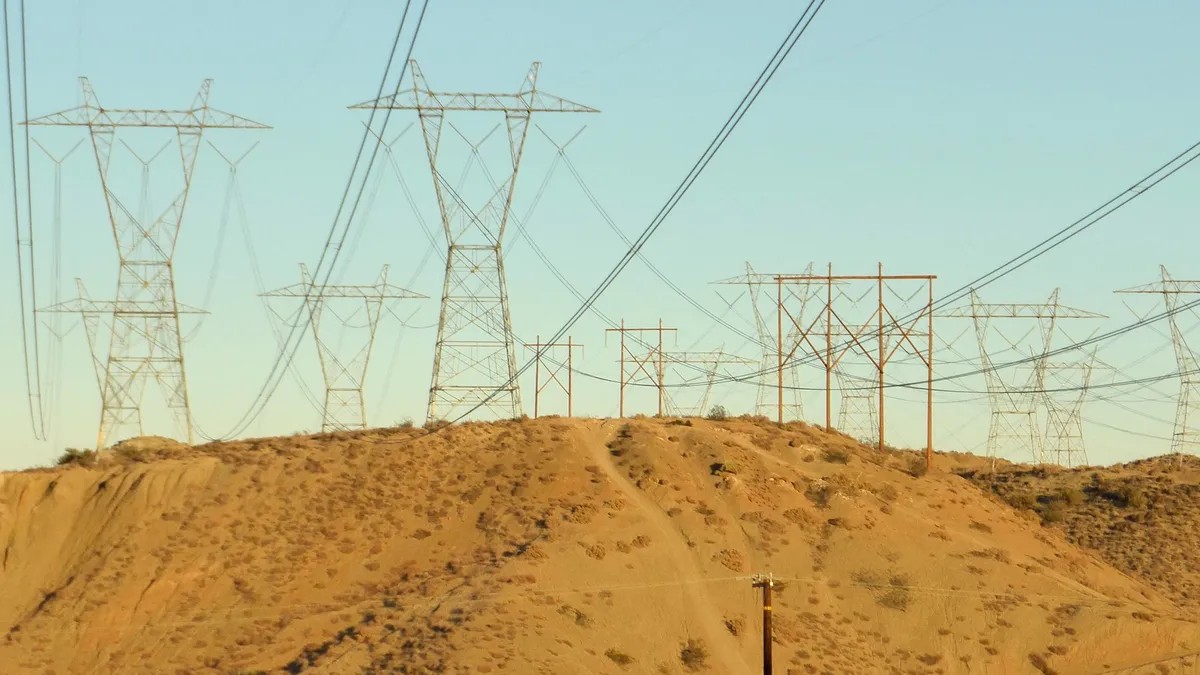Dive Brief:
- The Federal Energy Regulatory Commission’s actions around its enforcement of a $1,000/MWh soft offer cap across most of the West may lead power suppliers to withhold electricity when the grid is most strained, according to the Western Power Trading Forum, or WPTF, and the Electric Power Supply Association, known as EPSA.
- The trade groups urged FERC in a Wednesday filing to harmonize the Western Electricity Coordinating Council, or WECC, soft offer cap with the California Independent System Operator’s $2,000/MWh offer cap to reduce uncertainty for market sellers.
- FERC’s recent decisions ordering refunds from sellers that exceeded the WECC soft offer cap is creating uncertainty, according to the trade groups. “The commission’s actions to date on the cost justification requests may threaten the ability or willingness of sellers to offer power during high-demand conditions or when supplies are tight for fear of violating an unfounded regulatory prohibition that would require refunds,” the trade groups wrote.
Dive Insight:
The trade groups’ warning comes as the West faces a heightened risk of power outages this summer, partly because of drought.
During the summer of 2020, the West was hit with major heat waves, leading wholesale power prices to soar, with some transactions exceeding the WECC soft offer cap in place across Western states outside of CAISO. Afterwards, FERC ordered 21 utilities and other power supply companies to justify those sales. The companies included Exelon Generation, Tucson Electric Power Co., Public Service Co. of New Mexico, PacifiCorp and Nevada Power Co.
In some cases, FERC has ordered the companies to refund bids that were calculated to be above the weighted average Intercontinental Exchange, or ICE, index, at trading hubs in the region, according to the groups, which represent power suppliers.
The WPTF and EPSA contend FERC in part based those decisions on “a gravely concerning misapplication of the Mobile-Sierra doctrine that underpins confidence in mutually agreed upon contracts between buyers and sellers.”
Under the Mobile-Sierra doctrine, FERC cannot change freely negotiated contracts between independent parties, unless it is found to be in the public interest.
“In these [bid justification] orders, the commission acknowledges that the Mobile-Sierra doctrine applies to the contracts at issue, but then relies upon a convoluted interpretation of the entities’ market-based rate authority to in fact change the contract price,” the WPTF and EPSA said.
“In no instance did the commission make a public interest determination to support such a finding,” they said.
To reduce uncertainty, the groups urged FERC to reaffirm its adherence to the Mobile-Sierra doctrine unless the agency shows the public interest would be hurt.
Also, the disallowance and requirement to refund sales that exceeded the ICE index price raises “distressing issues” for future sales during tight supply conditions, the groups said.
FERC should reconsider its use of the ICE index in its cost justification reviews, the WPTF and EPSA said.














